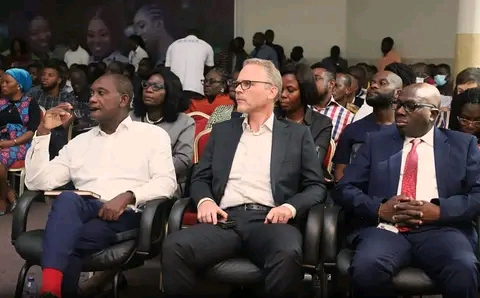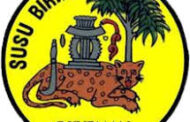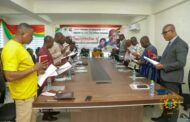The Ministry of Communications and Digitalisation (MoCD), in collaboration with GhanaCARES, has joined forces with the Tony Blair Institute for Global Change (TBI) and the Office of the Head of Civil Service (OHCS) to spearhead the Digital Skills Training Programme (DigSMART).
This initiative is aimed at accelerating the digital transformation of service delivery by training Public and Civil Servants.
Marking a significant leap in its journey, the DigSMART Scale-Up has witnessed an unprecedented growth by enrolling an additional Eight Hundred and Thirty (830) participants this year.
This is in conjunction with the previous year’s tally of One Hundred and Seventy (170), culminating in a total of 1000 participants.
This expansion underscores the Ministry’s unwavering commitment to cultivating a digitally proficient public sector workforce.
The programme offers an extensive curriculum that encompasses a broad spectrum of digital competencies, crucial for spearheading leadership and transformative projects within the government sector.
The programme is expected to provide the opportunity for Participants to immersed in a range of subjects including digital strategy, leadership, governance, and change management, thereby equipping them with the tools to drive digital innovation.
The Minister for Communications and Digitalisation in a speech delivered on her behalf by the Director General of the National Information Technology Agency (NITA), Mr Richard Okyere-Ofosu, indicated that as the Ministry embarks on implementing a new digital economy policy, “we envision an efficient delivery of government services and the adoption of a new way of working within the government. DigSMART Scale-Up will play a pivotal role in fast-tracking digitalization, making our public sector workers more effective in their service delivery”.
He said, this year marks a significant expansion as participants from all corners of the nation gather at three central training hubs, guaranteeing broad accessibility. The Accra training center will serve participants from the southern belt, Sunyani for those from the middle belt, and Bolgatanga for participants from the northern belt.
In the wake of the COVID-19 pandemic, the Government of Ghana has strategically placed “Fast Track Digitization” at the heart of our program for rejuvenation and ultimate transformation. This focus aligns with our commitment to fostering increased digital literacy and crafting a comprehensive National Digital Economy Policy and Strategy.
“Allow me to share the remarkable progress we’ve made in the inaugural year of DigSMART. We enrolled 170 participants from various civil and public service institutions.
The outcomes of the first year have been nothing short of transformative, and the success stories of those 170 participants stand as a testament to the program’s efficacy”.
“This year, we embark on the second phase of DigSMART with great enthusiasm. I am delighted to announce that we are enrolling a staggering 830 participants from across the country. This significant surge in enrolment speaks volumes about the growing recognition and importance of digital skills in our public sector”.
The Head of Civil Service, Dr Evans Aggrey-Darko said the DigSMART initiative represents a crucial step in our commitment to harnessing the power of digital innovation for the betterment of our citizens and optimization of government operations as governments exist for its people.
According to him, in the ever-evolving landscape of the public service, the Digsmart program stands as evidence to our dedication to embracing transformative technologies and promoting a culture of innovation within the civil service.
The Coordinating Director-Operations at the Ministry of Finance, Mrs. Stella Williams said the DigSMART program compliments government efforts towards positioning Ghana as a regional hub for digital services. The program leverages on innovative solutions and partnerships to address systemic issues while unlocking new opportunities for growth and prosperity.
The Director General of the Kofi Annan ICT Centre, Mr Collins Yeboah-Afari advised participants to take the training seriously since technology has the power to give learners a voice that they may not have had before and transform societies and nations. It is estimated that 90% of future jobs will require some form of ICT skills or background.
Source:Mybrytfmonline.com/Kwabena Nyarko Abronoma




















































